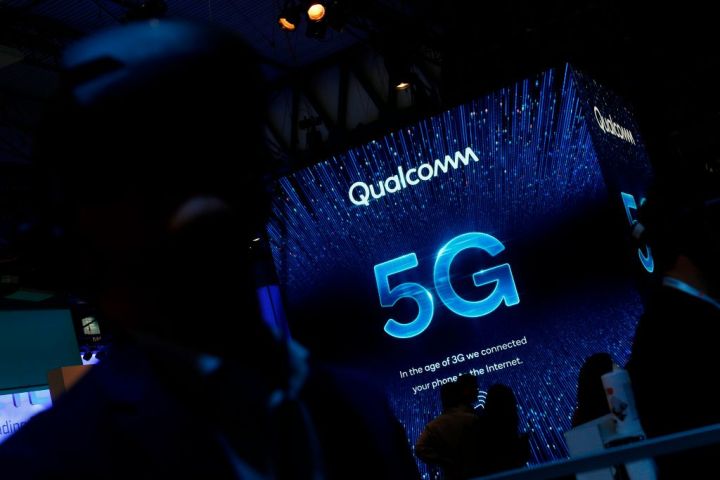
Qualcomm ruling raises concern over U.S. competitiveness in 5G race
Qualcomm ruling raises concern over U.S. competitiveness in 5G race

A federal judge has ruled that San Diego-based semiconductor titan Qualcomm violated antitrust law by charging “unreasonably high” fees for its smartphone chip technology. At issue is the way Qualcomm charges smartphone makers like Apple and Samsung for chips that process smartphone functions and connect phones to networks. Qualcomm now must renegotiate its fee structure with customers, the ruling states.
This could undercut Qualcomm’s fundamental business model, analysts said, and deprive the company of research and development funds for fifth-generation mobile technology. This would put the United States at a competitive disadvantage vis-a-vis China in the race to 5G, Qualcomm and its allies argue.
Key points:
- Qualcomm dominates the U.S. semiconductor market. It makes chips that run smartphones and connects them with mobile networks.
- At issue: Qualcomm’s complex system of charging two fees to phone manufacturers like Apple and Samsung — one fee for the chips, one for the licenses.
- A Federal judge ruled that Qualcomm fees are “unreasonably high” and a violation of antitrust law.
- What’s next: Qualcomm must renegotiate fees with customers, potentially undercutting its business model.
- At stake, say Qualcomm and its allies: U.S. economic and national security. Lower revenues would mean less funding for R&D, reduced innovation and less ability to compete against Chinese competitors.
- The fear: Chinese dominance in 5G wireless could present surveillance threats, say Qualcomm and its allies in Congress and the Justice Department.
- But this is hotly debated. Other U.S. chipmakers like Intel thrive without charging the fees Qualcomm has.
There’s a lot happening in the world. Through it all, Marketplace is here for you.
You rely on Marketplace to break down the world’s events and tell you how it affects you in a fact-based, approachable way. We rely on your financial support to keep making that possible.
Your donation today powers the independent journalism that you rely on. For just $5/month, you can help sustain Marketplace so we can keep reporting on the things that matter to you.


















